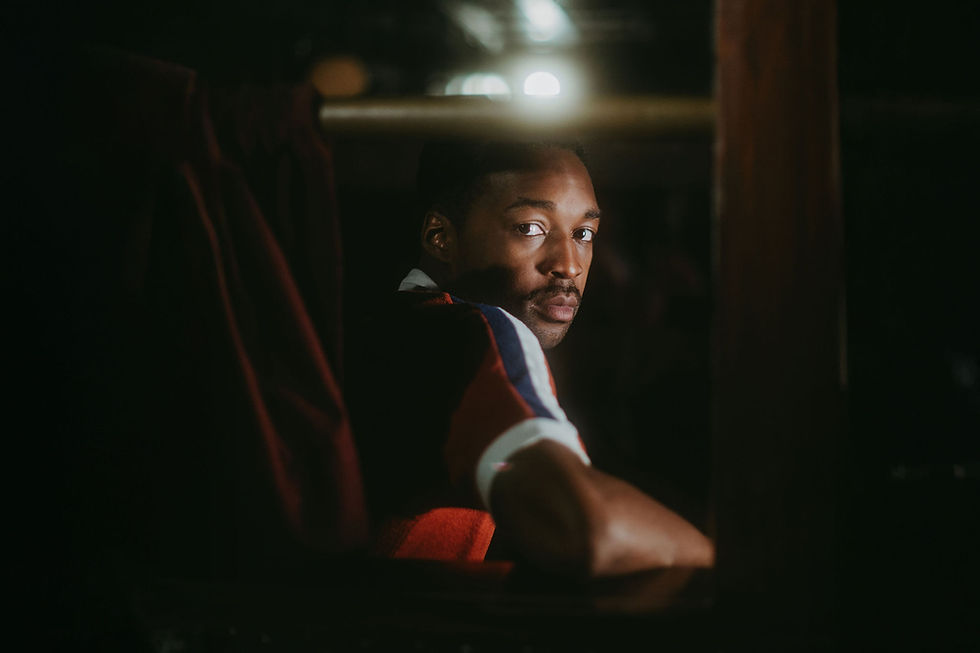THE WAR ON DRUGS – I DON’T LIVE HERE ANYMORE: REVIEW
- Nov 4, 2021
- 3 min read

THE WAR ON DRUGS
I Don’t Live Here Anymore (Warner)
In some mitigation, it should be noted this review is being written on a lot of drugs (sadly, only Codral and Panadol), and almost no sleep (sadly, not because of a lot of non-Codral/Panadol drugs) as well as a deep, abiding love for The War On Drugs.
So, yes, maybe take some of what comes next with a tiny grain of sceptical salt, but keep in mind that right now – this past year or two; hell, this past decade or two – with or without some medicines or stimulants, the world has been blurry around the edges, uncertain in the middle and in need of a long, smooth, sun-and-road-and-lock-your-speed-and-just-drive break that took you somewhere, anywhere.
And if that’s what you’ve been craving, if the idea of a friction-less cruise in fourth gear down a coastal road with a soundtrack that is like somebody repackaged the 1980s for you with naggingly familiar but hitherto unheard songs, then boy are you in luck.
I recently described, in my review of the new Marisa Nadler album, The War On Drugs as the most (early to mid-) Pink Floyd band around. That wasn’t based so much on specific Floyd lifts as their ability to blend pastoral and psychedelic and the latent potential to burn harder in guitar rock with a constant air of quiet, probably stoned, wonder.
I Don’t Live Here Anymore finds main TWOD chap Adam Granduciel, a singer who has always uncannily channelled Mark Knopfler at his most Dylan-esque, letting go of the trippiness and some of the guitarness and indulging in the synth-iness and (in its own way) sunniness.
The last qualification is important because Granduciel is not a man given to the cheeriness of the optimistic. He, or his characters, tend to at best be searching for a way through, but often enough have accepted that that’s not what can happen and this is not getting better. That Knopfler/Dylan delivery, again at best, has the weariness of the long explorer, or a pretty chilled-about-it-all understanding. So, the sunniness here is relative.
However, taking all that into account, song after song here just makes you want to tip your head back and let go, happily. Track after gorgeously landscaped (by Granduciel and Shawn Everett) track here just makes you want to luxuriate.
Harmonia’s Dream (which actually sounds like Tom Petty cohabiting with Giorgio Moroder) cruises until a minute in, the acoustic guitars ring through and you begin to nod, to smile, to look beyond the next corner. Wasted has the propulsion that might send a young Kevin Bacon dancing around a barn and just accumulates energy until either your tractor or your DeLorean elevates.
The title track somehow positions Tears For Fears in The Breakfast Club or maybe St Elmo’s Fire, but (thank God) instead of Rob Lowe’s saxophone we get what might be a bank of female backing singers gently duelling with rings of electric guitar.
This is where it may be beginning to dawn on the Floyd, and indeed the southern rock/My Morning Jacket, end of their fan base – not to mention people who have not yet recovered from that ‘80s-themed 40th birthday party – there’s a definite feel to this album. And it almost certainly comes in pastel jackets pushed up at the sleeves.
Too much so? Well, again, that’s relative. Is Change, all Church-like guitar lines, Alan Parsons melody and Jackson Browne delivery, too much or just outright pretty? Do the Brothers In Arms moves of Rings Around My Father’s Eye, all limpid tones and encircling vocals, ask too much of people (like me) who stopped really listening after Making Movies? Or is that not far from a more recent Jason Isbell ballad?
I’m not saying this is Lost In A Dream genius quality, and I’m not sure if it will outlast the appeal of A Deeper Understanding. Nor am I saying this is going to change your life. And, yes, maybe it’s the drugs talking. But right now, this just sounds perfectly right.




Comments